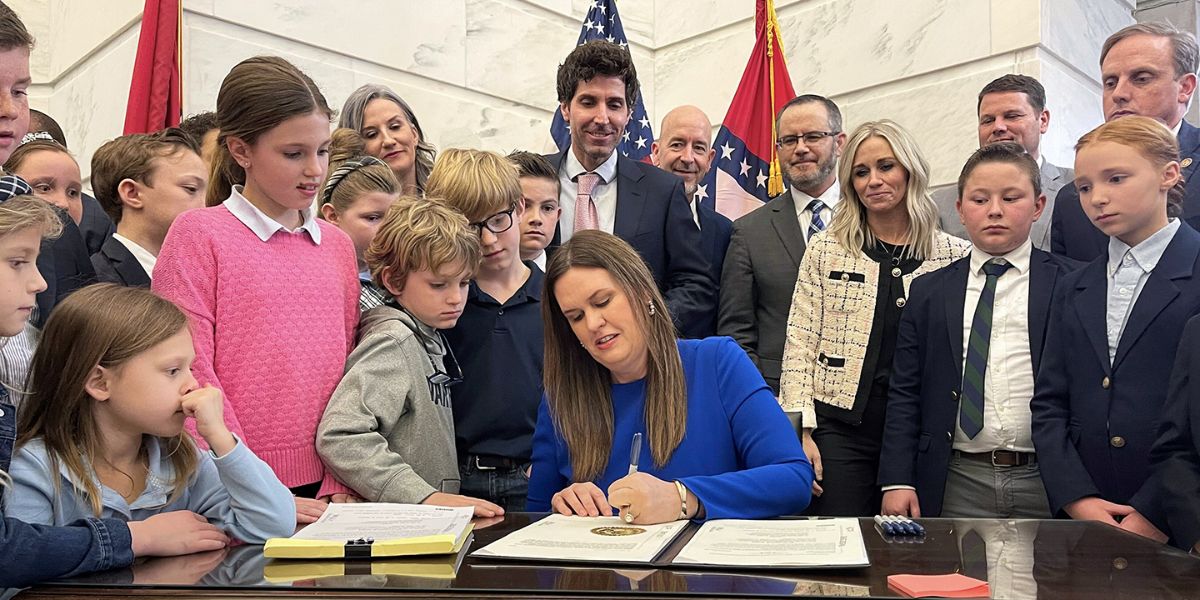Arkansas LEARNS Act Sparks Dialogue on Education Funding and Accountability
The Arkansas Secretary of Education and local educators met today at the Little Rock Rotary to discuss the LEARNS Act and the questions surrounding its implementation. The panel examined a variety of topics, including volunteer hour requirements, teacher salary increases, literacy requirements, and responding to allegations that taxpayer monies are being removed from public schools.
The law requires high school students beginning in ninth grade in the 2023-24 school year to complete 75 hours of community service in order to graduate. Some parents argue that this places a hardship on working parents and students with extracurricular activities.
“I understand that some of our students have special circumstances, but we will not allow that to prevent them from graduating from high school,” stated Jacob Oliva, Arkansas Secretary of Education. “We are going to work with that school and work with that family to get them across the finish line.”
Oliva stated that they intend to collaborate with schools to facilitate volunteer hours during the school day. Superintendent of the Jacksonville-North Pulaski County School District, Jeremy Owoh, stated that the process has already begun.
“We provide opportunities right there in the vicinity of the high school that will allow our young people to be readily accessible for those volunteer opportunities,” Owoh went on to say.
Another requirement of LEARNS was to raise teacher starting compensation to $50,000 per year. Owoh stated that creating a pay scale for teachers was a problem and that smaller districts informed him that this was a greater challenge for them, but that it has also been useful.
“It lowered the number of vacancies that we had,” Owoh added with a laugh. “Last year, we began the school year with double-digit vacancies. This year, there were single digits, and next year, one of my larger elementary schools with 800 pupils has only one vacancy.”
The LEARNS Act has been criticized across the state for reducing public education funding.
Oliva stated that scholarship programs similar to learn school vouchers have been in place for many years and that this will not result in any funding cuts.
“If a school district does lose students over time, they do receive declining enrollment additional dollars to help sustain some of the loss of the students,” Oliva said. “It is not about diverting from one place to another it is about empowering parents and making sure if they want to choose other options those options are attainable.”
According to Oliva, one of the primary challenges they’ve heard about is holding schools that employ vouchers accountable.
He stated that the Department of Education is currently determining the particular regulations, but that vouchers will be held to the same accountability standards as public education. He stated that any negative actors who do not use the program appropriately would be removed immediately.
According to LEARNS, literacy exams are required from kindergarten to third grade, and certain pupils who do not reach the third-grade reading benchmark by the 2025-26 school year will not be promoted to fourth grade.
According to Oliva, schools presently use the ATLAS standardized test to measure pupils’ progress on an annual basis, but they plan to deploy the Unified Coordinated Progress Monitoring System next year.
“We will be able to get that snapshot in time on student performance throughout the year so that we can help inform teachers, students, and parents on some of the skills they are doing well with and some that they may need more help with,” Oliva said. “They will not have to wait until the end of the year to learn how their child is doing. They’ll know throughout the school year.”
Oliva stated that educators will review the ALTAS test results this summer and expect to have results back sometime this autumn when they move to the new monitoring system.










